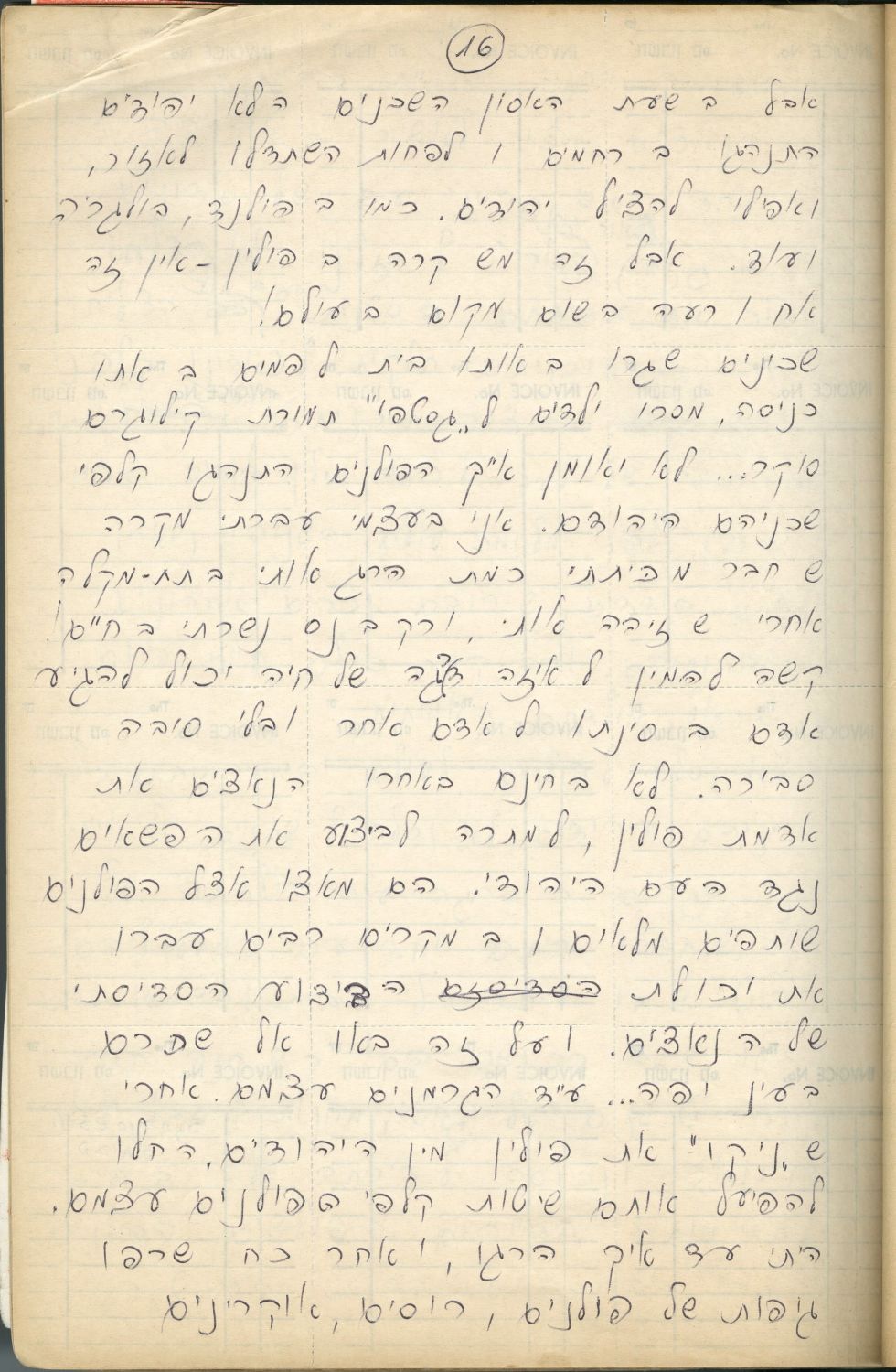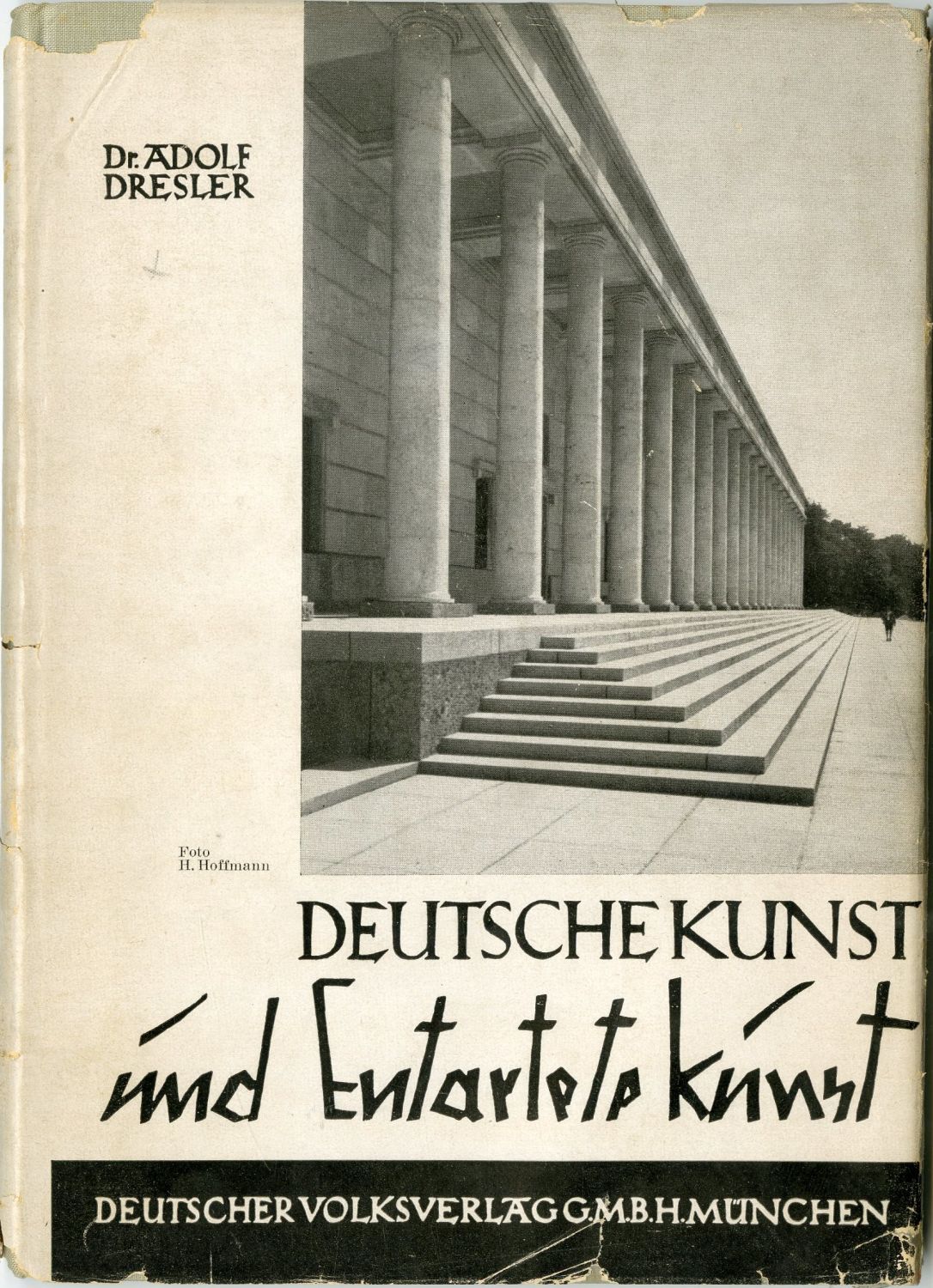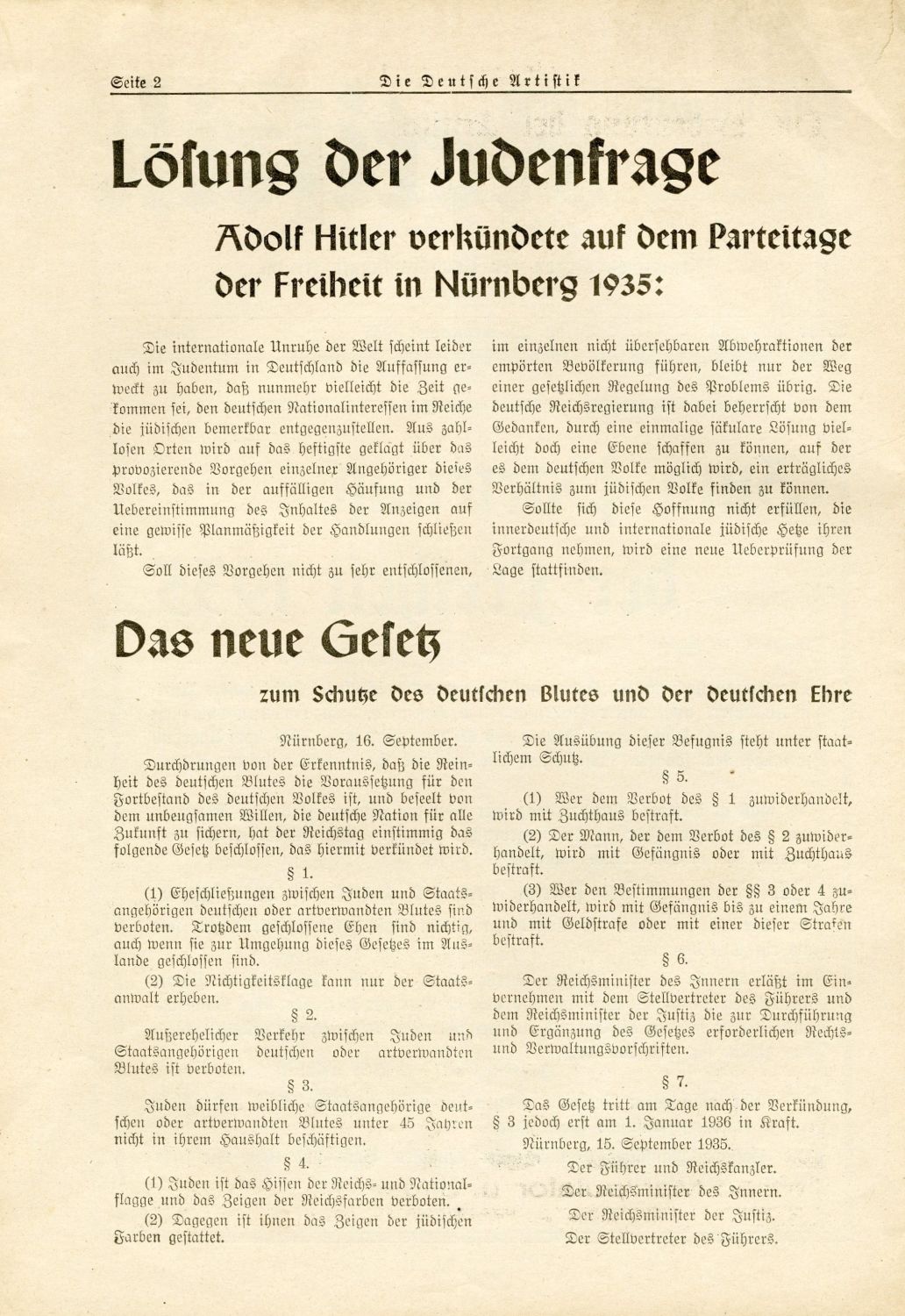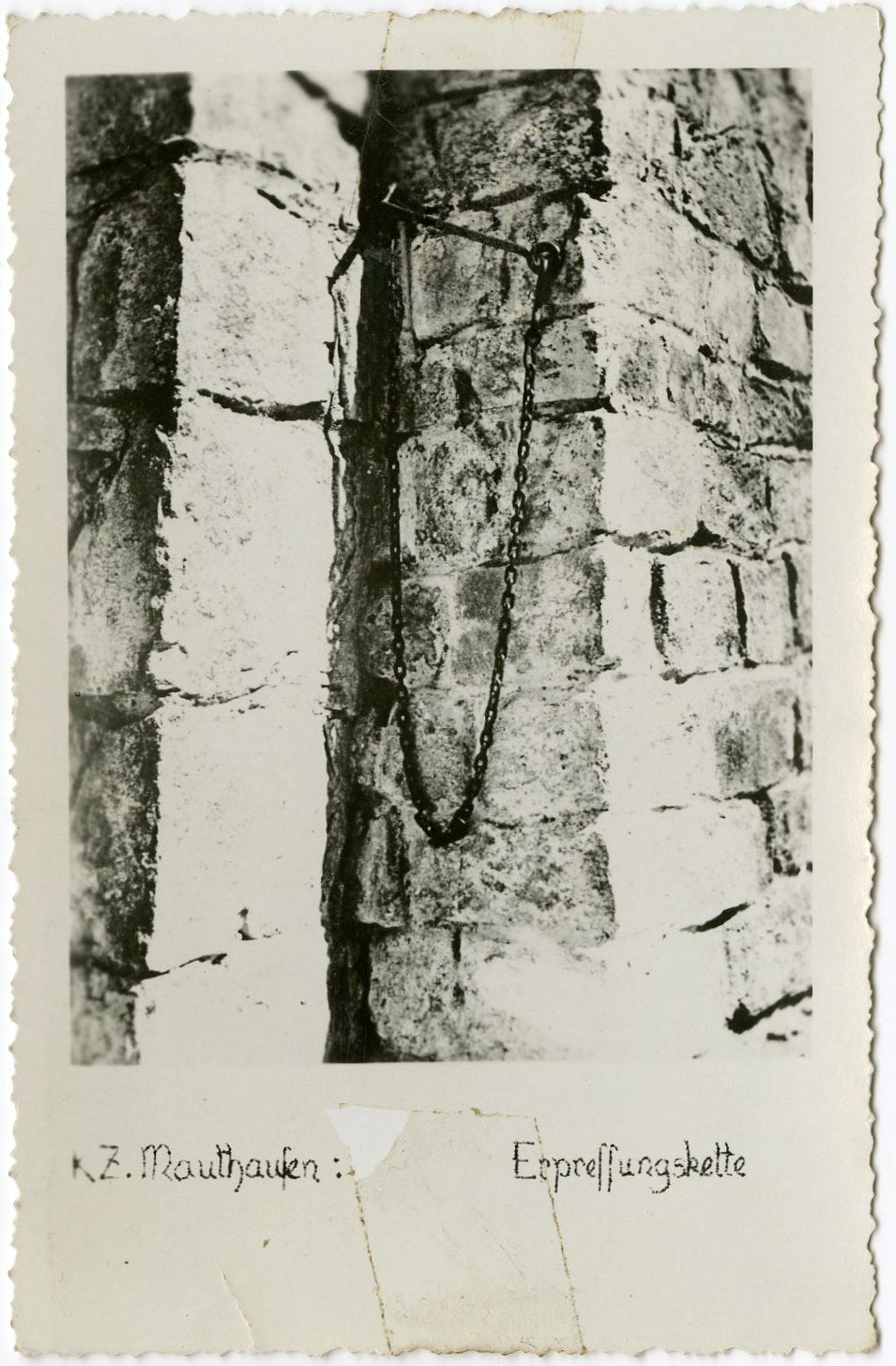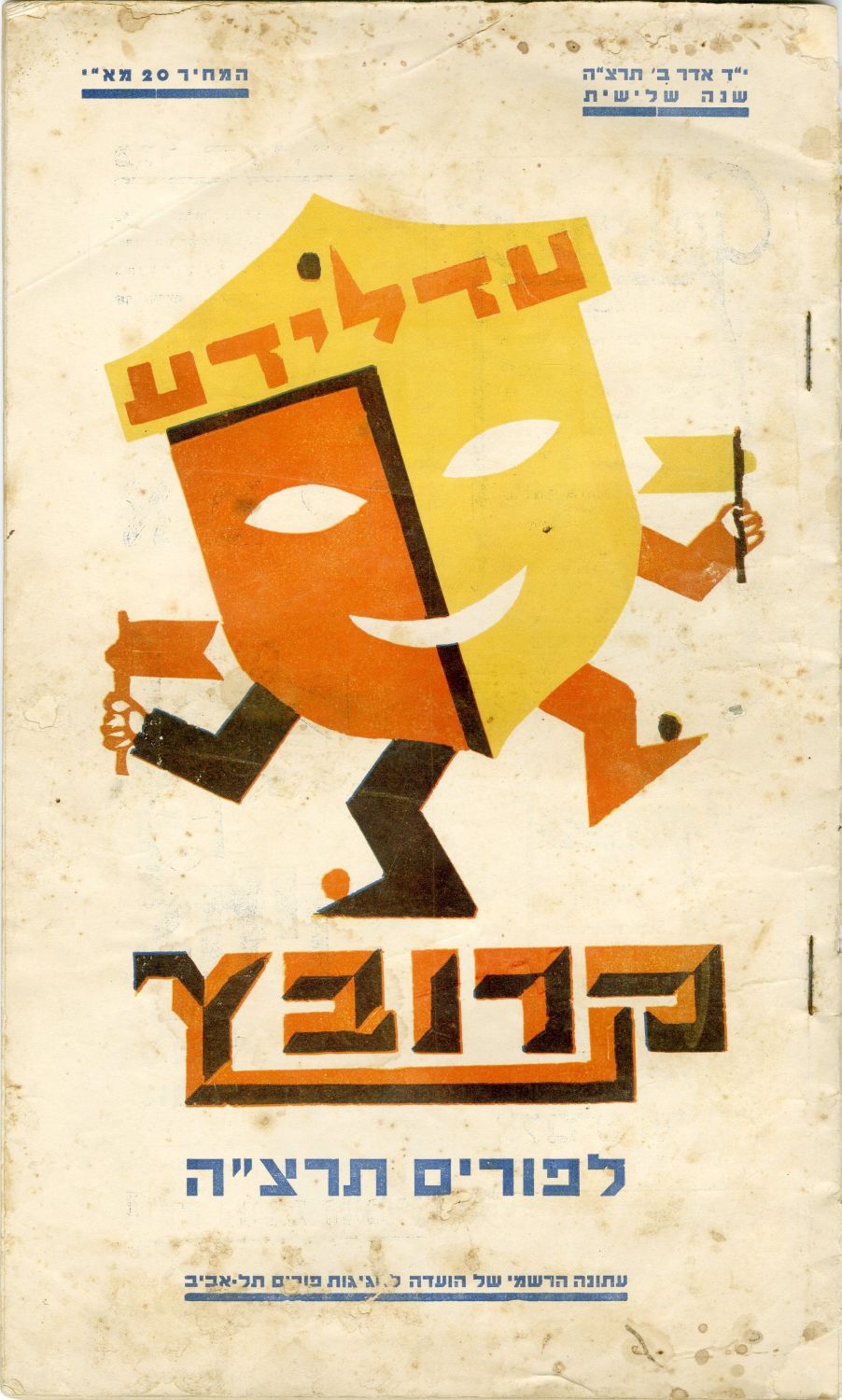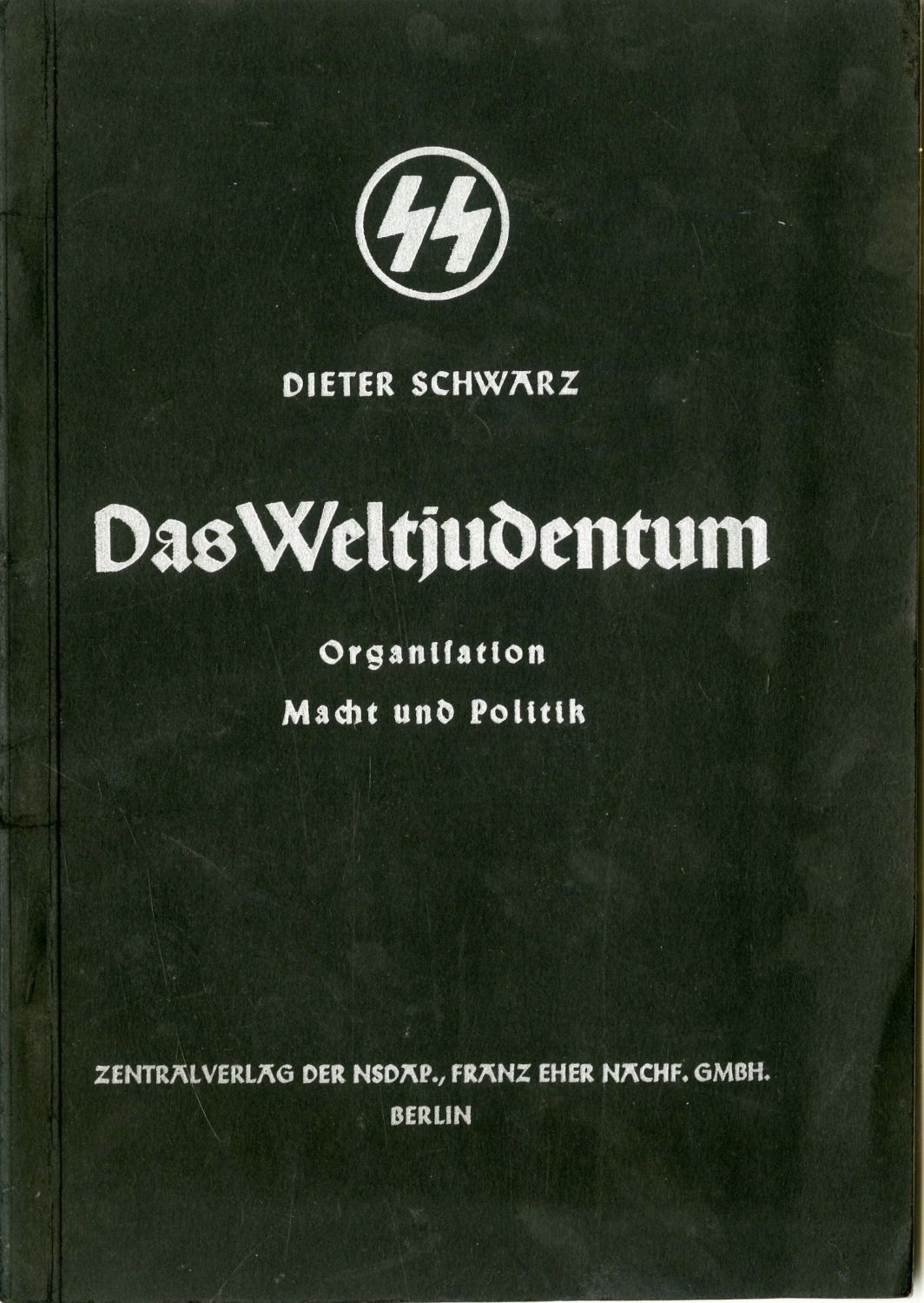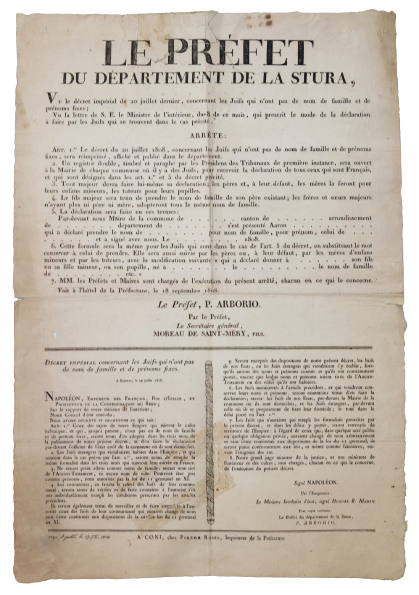Diary notebook handwritten by Holocaust survivor Moshe Lipman telling the story of a 12 year old girl who lost her parents in the Holocaust, managed to save her brother, was taken to Majdanek and Auschwitz, and survived in the end thanks to being the daughter of a Breslov Hasid who instilled in her joy and love of life – a moving description of the supreme spirit of a 12 year old Jewish girl, alongside harsh testimony about the cooperation of the Poles with the Nazis in pogroms against Jews in the ghetto, and the cruelty of the Nazis themselves. Lipman wrote the testimony after the Holocaust when he was already in Eretz Israel. Lipman himself underwent a similar journey from Warsaw to Majdanek and himself witnessed the events he describes.
In the notebook Lipman documents the amazing story of a 12 year old girl named Hannah daughter of Yehiel Yitzhak Feiner a Hasid of Uman from the Warsaw Ghetto, who was murdered by rioting Poles when he was only 40 years old. And Hannah who was then 12 took care of her brother alone. She turned to the Janusz Korczak orphanage asking them to accept her brother, Hannah came from a religious family and she asked that her brother be allowed to keep the commandments in the secular Janusz Korczak institution. This was made possible, and her brother would be woken up before the daily schedule of the other children and pray every morning, keeping the tradition of their fathers even in the secular institution.
Hannah went to live with her uncles. For a while she disguised herself as an Aryan and when this was no longer possible due to the tightening of searches by the Nazis, she hid in a bunker. At one point the Germans bombed the bunker and its occupants, but miraculously she survived. Hannah used to go out at night to look for food and water. One time she was caught and taken along with other Jews in cattle cars to Majdanek. Lipman describes the difficult train ride to Majdanek. "The Nazis raced the trains of Jews at nighttime like "thieves in the night" in order to hide these deeds from the civilian population. Although the cars were stationary, they were locked from the inside without food and without water, crowded, unable to sit or lie down. The Germans calculated the number of people so that not a centimeter of free space remained. Everyone was stuck to each other...". Lipman describes the difficult journey and arrival at the camp, as many did not withstand the harsh conditions and had already died along the way. When the train arrived at Majdanek about a quarter of the people were already dead, and many were on the verge of death. He describes the selection upon arrival at the camp after a two hour walk on foot as the Nazis shot anyone who was unable to keep walking. "They went through in line for selection. The SS selector stood there with a stick in his hand. He would command right or left, right was the shower, left was the gas chamber, and so the convoy passed and in a brief moment the person was sentenced to life or death, it all depended on the will of the SS man." Hannah passed the selection safely and was taken to work in the camp. Here Lipman describes the hard labor the women were forced to do in order to physically break them down.
One of the hardest passages in the notebook is the page where Lipman describes the reaction of the Poles to the suffering of the Jews. As Hannah was deported to Majdanek along with a large group of Jews the Poles mocked the Jews in light of their suffering. And Lipman did not forgive them for it: "What evil did we do to them? ... Jews served in the Polish army, despite discrimination and not once in Polish history risked their lives for the Polish "homeland", studied in Polish schools... All this did not help at the fateful moment, the Poles showed us what was lurking deep in their hearts, anti-Semitism in Poland was so deeply rooted, that even a small child who could barely speak knew to curse and hate Jews, and this was passed down from generation to generation... they the Polish neighbors who were the first to break into Jewish homes after their deportation to death camps, and looted, stole and destroyed Jewish property... neighbors who lived in the same building sometimes in the same entrance handed children over to the Gestapo for a kilogram of sugar... It is unbelievable how the Poles treated their Jewish neighbors... I myself went through a case where a classmate of mine almost killed me with a submachine gun after identifying me, and only by a miracle did I stay alive! ... Not for nothing did the Nazis choose Polish soil for the goal of carrying out fascism against the Jewish people. They found full partners in the Poles, and in many cases exceeded the sadistic capabilities of the Nazis themselves... We will never forgive the Poles for their behavior towards their Jewish neighbors, we will not forgive the neighbors of my wife Hannah who lived in Praga her hometown who took over their home... and household items and used them as if it was their property!"
In Birkenau Hannah worked in a factory manufacturing balloons against airplanes, in constant hunger with chemicals in the air that severely affected the health of the working women. "Hannah was among the few girls who managed to survive this work", he writes, thanks to the help of the German manager who had no family of his own and made sure to provide her with food and assist her. Lipman writes that despite the severe torture she endured in the camp (on one page he describes a difficult abuse Hannah underwent in the camp in a water bath and notes that other prisoners did not withstand this difficult abuse and met their death), other prisoners met their death as a result, Hannah was made of special material - she was the daughter of a Hasid of Uman - "The Hasidim of Uman were people full of joy of life and faith... faith in G-d and their rebbe Rabbi Nachman who was buried in Uman in distant Russia gave them strength and hope that an end to the suffering of the Jewish people would come soon... Therefore they dedicated every free moment to singing, dancing, and laughing... Hannah inherited the trait of joy and cheerfulness from her father...".
Moshe Lipman was born in 1922 in the town of Konin, Poland. He was orphaned from his father at a young age, and began wandering between towns in Eastern Europe. When the war began, he was with a group of orphans in the cities of Piotrków. The group got on the train towards Warsaw, but the Germans bombed the rear cars, and the survivors from the front cars had to walk to Warsaw on foot. In May 1943 he was captured by the Nazis, and sent to the Majdanek extermination camp, where he stayed for a month and a half. After that he was sent to Birkenau. Towards the end of the war when the Nazis realized their end was near they cruelly sent the camp prisoners towards central Germany, but on the way they were liberated by partisans. In 1946 he immigrated to Eretz Israel and fought in the War of Independence.
27 written pages. Of these, pages 1-5 are on separate leaves, the rest in a large 32 cm notebook.


